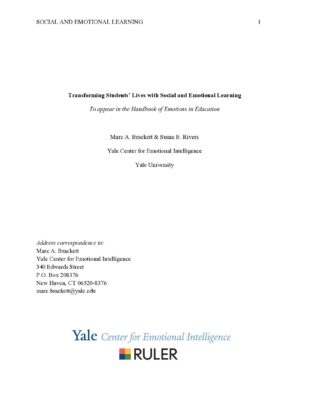Resource Hub
Explore guides, research papers, policy briefs, and tools to aid decisions on standards and assessments.
Transforming Students’ Lives with Social and Emotional Learning
Social and emotional learning (SEL) is the process of integrating thinking, feeling, and behaving in order to become aware of the self and of others, make responsible decisions, and manage one’s own behaviors and those of others. This resource describes the objectives and theoretical underpinnings of SEL, highlights research findings demonstrating the evidence supporting SEL programming, and advocates for comprehensive and systematic implementation of SEL programming in schools. This chapter illustrates how SEL programming in schools results in significant shifts in students’ social, emotional, and academic competencies as well as improvements in the quality of learning environments.
This resource appears as a chapter in the International Handbook of Emotions in Education and is also available through the Yale Center for Emotional Intelligence.


This chapter, authored by lead researchers from the Yale Center for Emotional Intelligence, provides a research-based foundation SEL programs. Included in this chapter are the theoretical frameworks that ground the authors’ work in SEL. It is important to note that a large portion of the chapter is dedicated to describing the RULER Approach to SEL, which is the program created and supported by the Yale Center for Emotional Intelligence. That said, the overview of four, well-researched SEL programs provides relevant information for schools and districts interested in implementing SEL into their instruction and curricula.